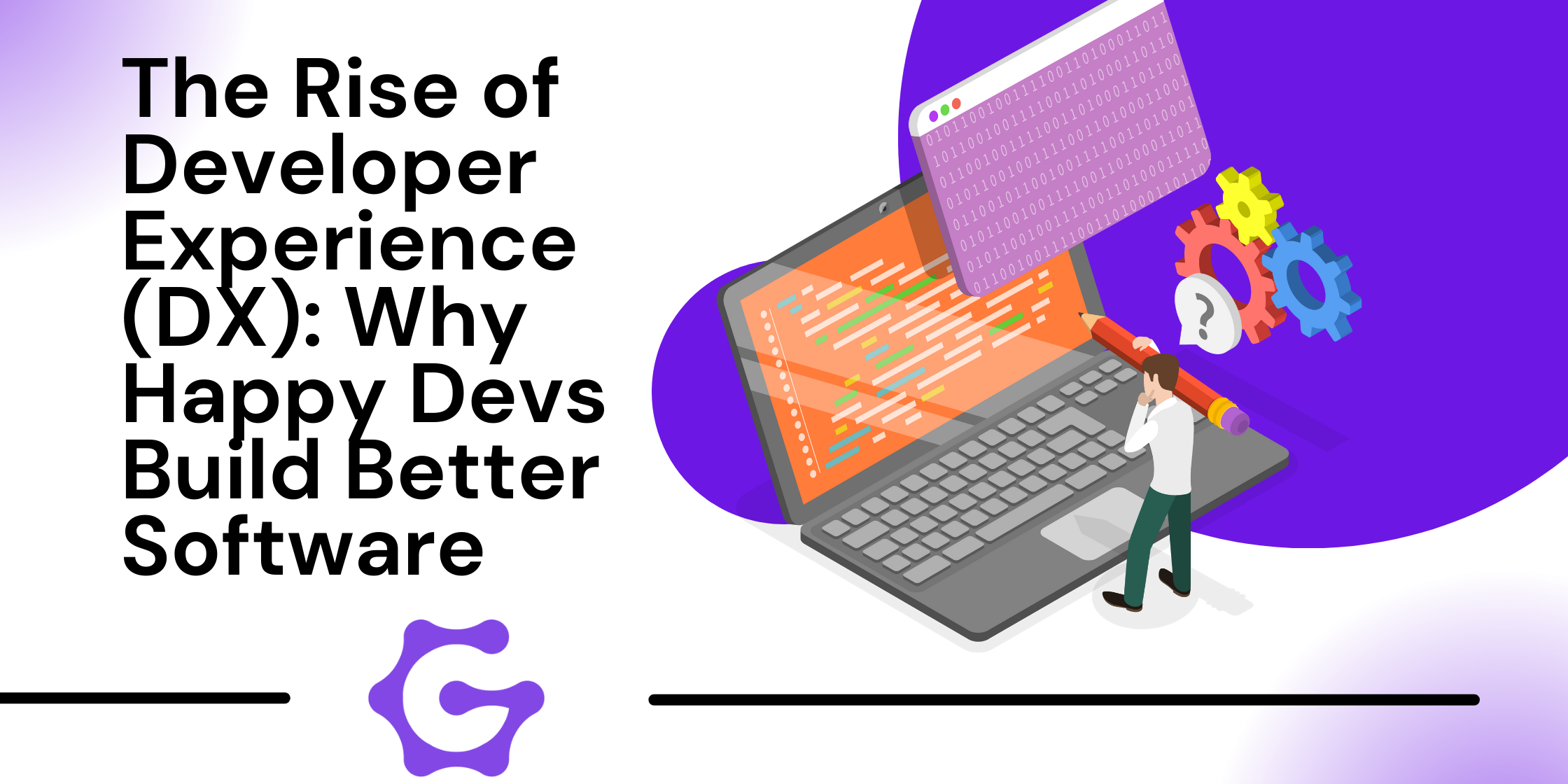The Rise of Developer Experience (DX): Why Happy Devs Build Better Software

When a new app is in development, founders often zero in on one question: “Does this benefit the customers?” They put a lot of focus on the User Experience (UX), but they often neglect to look at the usability or experience of those behind the code. Enter Developer Experience (DX), a concept that’s recently been gaining traction for one simple reason: happier developers will build better software. While it might seem obvious now, it has been overlooked for years. Companies are waking up to the idea that optimizing the work environment, tools, and processes for developers leads to more efficient, innovative, and high-quality outcomes.
What is Developer Experience?
Now, we know you might be thinking that the developer experience is what the workplace is like. It’s actually the overall workflow, environment, and tools that developers use to write, test, and deploy software. Much like User Experience, Developer Experience is about streamlining and simplifying the development process. The goal is to create an environment where developers can do their best work.
When developers show frustration with slow tools, disorganization, or endless meetings just to “check where we’re at” with the project, they’ll be slowed down to getting to the final stages of development. Companies that focus on improving DX understand that investing in their developers is an investment in their products.
Why Developer Morale Matters
We’re not sure why this is even up for debate. Everyone on your team should be happy. You’ve heard the phrase “Happy Wife, Happy Life”? Well, this is true across the board – even when you replace your wife with a developer, manager, sales person, etc. When you remove the barriers of the developers' work, they can focus on what they’re paid for: solving problems and building great software. Here are some tips to improve developer morale:
- Invest in Better Tools: Developers need the right tools to do their jobs effectively. Outdated, slow, or overly complex tools create friction that can slow down the entire development process. Invest in up-to-date, efficient tools that make coding, testing, and deployment a breeze.
- Streamline Processes: Avoid overloading developers with meetings, unnecessary approvals, or complicated workflows. Simplify wherever possible to let them focus on building. Agile frameworks and DevOps practices can help by creating more fluid, iterative workflows.
- Foster a Collaborative Culture: DX isn’t just about tools; it’s also about the work environment. Encourage open communication, code reviews, and pair programming to help developers share knowledge and tackle challenges together.
- Support Continuous Learning: Give developers opportunities to improve their skills and stay current with industry trends. Whether it’s time to work on side projects, attend conferences, or participate in online courses, continuous learning fosters creativity and keeps developers engaged.
- Prioritize Developer Well-being: Burnout is real, and it’s common in high-pressure development environments. Promote work-life balance, provide flexible working options, and encourage time away from the screen to keep your dev team healthy and productive.
Takeaways
Developer Experience isn’t just a buzzword – it’s a key to building successful, usable, innovative software. When a developer feels empowered to do their best work in a supportive, streamlined environment, the results will speak and show themselves. Happy devs build better softwares, and better software gets you more business which gets you more revenue – the lifeline of your business if we’re telling the truth. Investing in DX isn’t just a nice-to-have; it’s a strategic move that can make the difference your app needs in today’s competitive tech landscape.